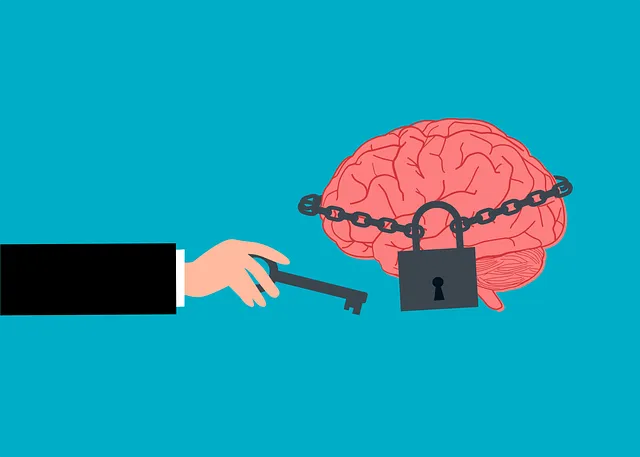Mental illness diagnosis involves an initial assessment by primary care providers who may refer patients to specialists within the Golden Kaiser Permanente mental health department network, offering personalized treatments like talk therapy and digital interventions. Effective communication, including active listening and journaling, is essential for understanding diagnoses and side effects. Cultural competency training for healthcare providers further enhances trust and open lines of communication, key components of successful treatment plans as advocated by Kaiser Permanente.
“Unveiling the complexities of mental illness diagnosis and treatment can be overwhelming. This comprehensive guide aims to empower individuals, particularly those within the Kaiser Permanente network, by demystifying the process. We explore the intricacies of understanding a mental health diagnosis and offer practical strategies for navigating diverse treatment options.
Furthermore, we emphasize effective communication with healthcare providers, highlighting the ‘Golden Rule’ for fostering strong patient-team relationships. With resources tailored for Kaiser Permanente members, this article serves as your navigation assistance in the crucial journey towards mental wellness.”
- Understanding Mental Illness Diagnosis: Unveiling the Process and Challenges
- Navigating Treatment Options: A Comprehensive Guide for Kaiser Permanente Members
- The Golden Rule: Effective Strategies for Communicating with Your Healthcare Team
Understanding Mental Illness Diagnosis: Unveiling the Process and Challenges

Mental illness diagnosis is a complex process that involves a thorough evaluation of an individual’s symptoms, medical history, and overall mental well-being. The Golden Kaiser Permanente mental health department number serves as a crucial point of contact for those seeking guidance and support. This process often begins with a primary care provider who refers patients to specialized mental health professionals based on their specific needs.
The challenges in diagnosis include the vast array of mental health conditions, each with unique symptoms, and the fact that many individuals may present with co-occurring disorders. The Community Outreach Program Implementation can play a vital role in raising awareness and providing early intervention services to reduce the burden on healthcare systems. Effective diagnosis requires not just clinical expertise but also empathy-building strategies for mental health professionals, as this can significantly impact patient engagement and treatment outcomes.
Navigating Treatment Options: A Comprehensive Guide for Kaiser Permanente Members

Navigating Treatment Options for mental health concerns can be a complex task, but with the support of Kaiser Permanente’s dedicated mental health department, members have access to a comprehensive guide designed to simplify this process. The Golden Kaiser Permanente mental health department number serves as a direct line to a network of professionals who specialize in various therapeutic approaches and treatment modalities. This ensures that individuals receive personalized care tailored to their unique needs.
By leveraging the expertise within Kaiser Permanente, members can explore a wide array of options, from traditional talk therapy to innovative cognitive-behavioral techniques, mindfulness practices, and even digital interventions. The goal is to foster positive thinking, promote mental wellness, and enhance emotional intelligence—all crucial components in the journey towards optimal mental health and well-being.
The Golden Rule: Effective Strategies for Communicating with Your Healthcare Team

When navigating mental illness diagnosis and treatment, clear communication with your healthcare team is paramount. Adopting the “Golden Rule” – treating others as you would like to be treated – can significantly enhance this process. Begin by actively listening to your providers, ensuring understanding of diagnoses, treatments, and potential side effects. Express your concerns, questions, and fears openly; your healthcare team exists to support you.
Additionally, utilizing tools such as Mental Wellness Journaling Exercises and Self-Awareness Exercises can bridge communication gaps. Regularly documenting thoughts and feelings in a mental wellness journal not only fosters self-awareness but also provides tangible records for sharing with providers. Moreover, encouraging Healthcare Provider Cultural Competency Training ensures that your team understands the nuances of different cultural perspectives, enhancing care delivery and fostering trust. Remember, open lines of communication are the cornerstone of effective treatment plans.
Navigating mental illness diagnosis and treatment can be daunting, but with the right resources, it becomes manageable. The article has explored essential aspects of this journey, from understanding the diagnosis process to communicating effectively with healthcare teams. For members of the Golden Kaiser Permanente mental health department, there are extensive resources available, including a comprehensive guide to treatment options. By utilizing these tools and adopting effective communication strategies, individuals can actively participate in their care and achieve better outcomes. Remember, seeking help is a sign of strength, and with the right support, recovery and well-being are within reach.






